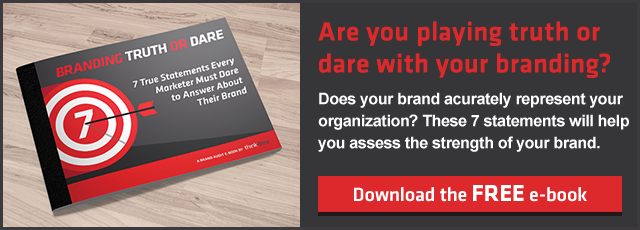
image credit: weedezign/shutterstock.com
Brand equity is a critical component in developing a quality branding strategy. If you’ve followed our previous posts around brand equity, we’ve drawn a few comparisons to the value of a brand as well. However, while brand equity is certainly related to value, the two aren’t quite the same. Both play a critical role in shaping your audience’s perception of your brand, how it stands out among competitors, and its longevity in your target market. In this post, we’ll share the key differences between brand equality and brand value that marketers should know.
Brand equity focuses more on customer experience than monetary value
The first key difference marketers should know about brand equity and brand value relates to the overall goal of each. While brand equity is generally focused on crafting a stellar customer experience, brand value has more to do with the monetary value of your brand. In other words, your brand’s ability to provide competitive pricing, generate ROI and the amount of repeated service to loyal customers helps determine brand value. Then, the way in which potential customers perceive your brand will have a greater impact on brand equity.
To determine brand value, marketers will want to focus more on recognizing potential customers and key competitors in terms of how much a person is willing to pay for solutions—and what the competition is offering as an alternative. This monetary value can come from multiple sources, rather than only customer-centric actions. It’s important to remember that because brand equity and value are still closely related, financial factors are still notable in brand equity as well—though they play a much greater role in determining brand value.
Success is measured differently between brand equity and Brand value
With brand equity, a customer’s personal experience—on an emotional level—is the main driver when it comes to measuring success. In return, stronger brand equity helps determine the success of the brand as a whole. This differs from brand value, where a solution’s quality, performance, and pricing are measured. As a result, brand value gives your company an idea of the financial value of your brand.
For example, let’s say your marketing company is running a new campaign to strengthen its brand loyalty. In this scenario, your company has determined a few factors that will be used to measure success: total repeated sales, additional revenue generated, customer feedback and referrals. Each of these areas may be equally important to your company, but they each play a distinct role in either brand equity or brand value. Here’s how each area may be broken down when measuring success:
Brand Equity
- Existing customers mention your company on social media, spreading awareness as a result.
- A customer sends a personal message to your marketing team, thanking you for the excellent solutions you’ve provided them. This may seem small, but it shows a strong relationship between the customer and your company.
- An existing customer refers your company to a friend or colleague who would be a good fit for the solutions you provide.
- Positive reviews are left on a popular marketing website, increasing exposure to a greater audience.
Brand Value
- Your marketing company generates additional revenue from existing customers.
- A price adjustment in your services or solutions results in repeated sales.
- New business leads to new sales (and a larger customer-base). This isn’t just about brand awareness or the act of a customer making a referral/mention of your brand; it’s more about the sales that result from those actions.
To summarize, the additional revenue and number of repeated sales you receive relate to your brand value, while the feedback and responses from customers determine success in terms of brand equity.
In the discussion of brand equity vs. brand value, ultimately, it's important to ensure that your company is measuring and growing each. As a result, your marketing company can strengthen its branding strategy, build brand loyalty, and generate more revenue. If you’re looking for extra branding tips, have a look at more of thinkdm2’s blog work. Thinkdm2 is a digital marketing and branding agency from New Jersey that specializes in the SaaS, IoT, and professional services industries.



